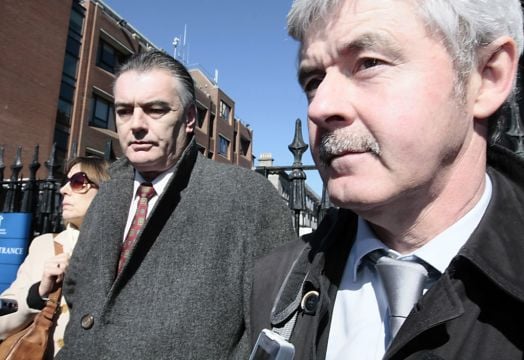A solicitor who represented the late Ian Bailey for over 20 years has described as “extraordinary” and “astonishing” a decision by the Tánaiste to say Mr Bailey should have been tried for the murder of French woman Sophie Toscan Du Plantier.
Micheál Martin, who is the Minister for Foreign Affairs and Cork South-Central TD, made the comments at the launch of the book Sophie: The Final Verdict by journalist Senan Molony in Dublin.
The Fianna Fáil leader was critical of the decision by the Director of Public Prosecutions (DPP) not to prosecute Mr Bailey, who died in January this year aged 66.
Mr Martin said there were significant questions that remained unanswered in relation to the death of Ms du Plantier at her remote holiday home near Schull in Co Cork on December 23rd, 1996.
In an interview on Cork’s 96FM, Mr Buttimer, the former solicitor for Mr Bailey, said he couldn’t understand why the Tánaiste opted to weigh in on the case.
He described Mr Martin's comments as a “feral attack” on “many of the pillars of the justice of the State.”
"I was just saying to someone else there a while ago that its almost as if [Mr Martin] woke up after 28 years of not knowing that something has happened, reads a book, which is pompously titled, quote-unquote, 'The Final Verdict' and says, 'my God, this is dreadful. Why didn't we do something about this?'"
Mr Buttimer said the Tánaiste seemed to fully take on board the contents of the book by Mr Molony, which he feels contains no hard evidence.
"The author concedes, I'm lifting quotes here from a newspaper, he says, quote, there are sequences here that would not be allowed in a court of law', end quote. Another quote, 'there are pieces of evidence here that would be struck out by the law and would not be allowed into their court system'.
"What's astonishing is [Mr Martin] seems to be basing his opinion on the content of a book where stuff is in there that would not be evidential. And he goes on to disparage the office of the DPP for declining to prosecute Ian Bailey, the Supreme Court, which he seems to suggest was used in an effort to prevent Bailey's removal, and the other two high courts which refused to extradite Bailey.
"So it's a feral attack on many of the pillars of justice of the State. Where it comes from, I have absolutely no idea. I would not have any adverse comment to make about Micheál Martin as a politician generally, but I'm surprised at this. I'm just wondering what this rant is all about.”
Mr Buttimer said he had no intention of reading the book by Mr Molony, as he is certain it won’t contain any new evidence in relation to the du Plantier case.
"I did a lot of research into the murder, into the dreadful murder of Madame Toscan du Plantier.
"I absolutely assure anybody who's out there listening that there was nothing tangible by way of evidence against Ian Bailey, such as would even have justified a prosecution against him, let alone a removal to the crowd over in France to their system of justice. Where you are effectively guilty until proven innocent with all of the consequences that would have flowed from there.”
He maintains that his late client was “100 per cent” innocent.
"100 per cent. Absolutely. Without question. The first time he walked in the door to my office in or about March 1997... he comes to me and he just says to me, 'look, if I'm ever prosecuted because you do defend, you know, you defend people who are accused of crimes and so on'. I said, absolutely. So I knew about the case, but I never had met him. So I spoke to him for a while.
"One gets impressions and one forms opinions of people as one meets them professionally or non-professionally. From that time onwards, I pretty much knew that the concoction against him was a load of rubbish.
"It was absolutely, manifestly obvious that there was nothing to go on.”
Mr Buttimer added that he fears the du Plantier case will go unsolved.
“Passage of time is the enemy of acquisition of information. So in all probability no, [it won’t be solved]. But ultimately the tragedy is, to say what happened? Like what actually happened?
“The failure is going right back to 1996/1997, to conduct a proper inquiry. We can’t turn back the clock on that one.”
Mr Bailey collapsed and died in Bantry, Co Cork, last January. He was on two occasions detained by gardaí for questioning in relation to the murder of the 39-year-old French national.
Mr Bailey always denied any wrongdoing in relation to the murder of the film producer. The poet and former journalist was convicted in absentia after a trial in France four years ago. He was sentenced to 25 years in prison.
Officials in France were unable to extradite Mr Bailey to Paris to serve the sentence handed down by the courts.
In an interview with Virgin Media News a month before his death, Mr Bailey said he had immense sympathy for the family.
“I know that I cannot do anything about their belief that I am responsible. They have always had my full sympathies. I have expressed that.
“People are entitled to believe what they want to believe. We can’t change what people are going to believe.”







